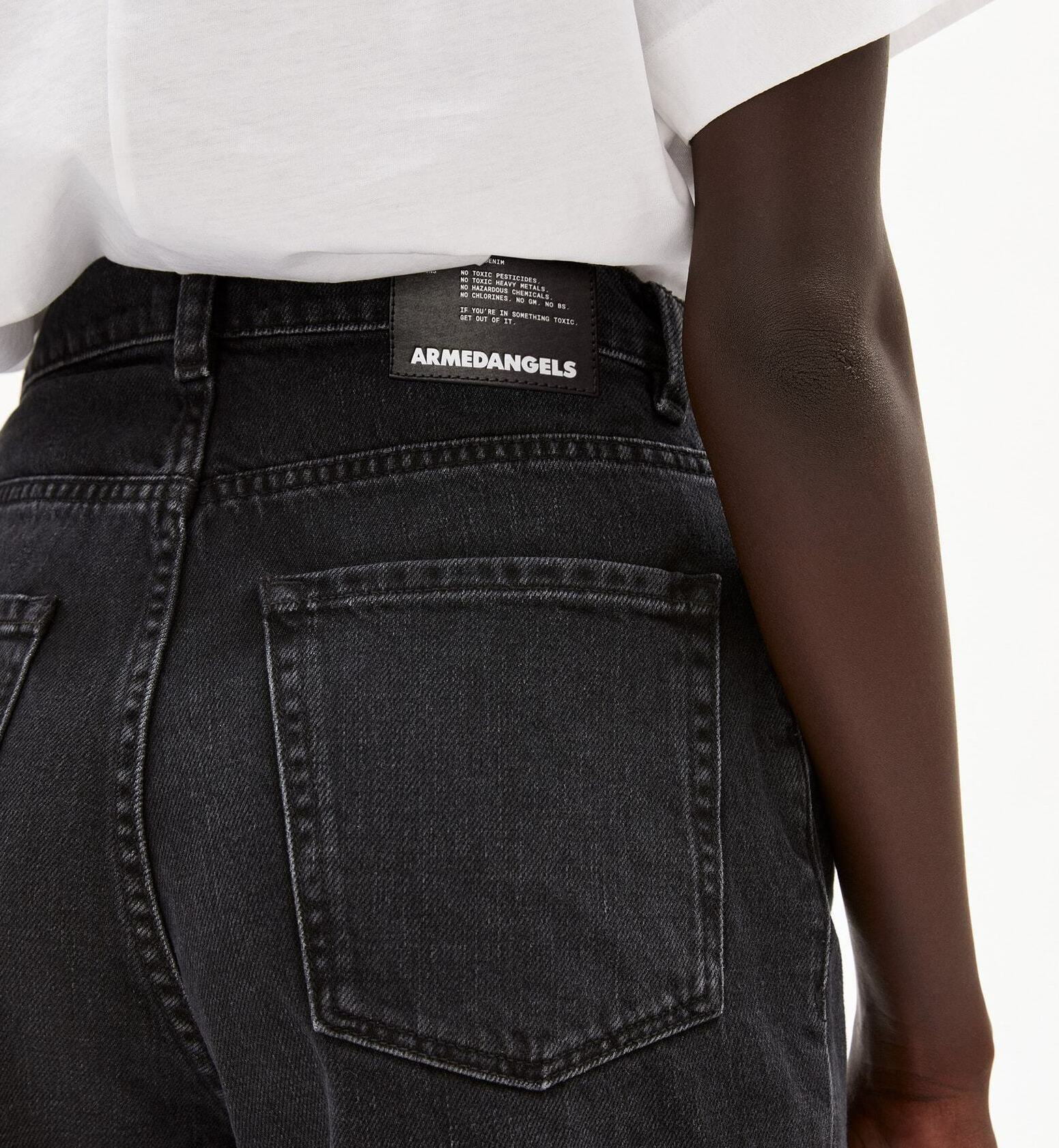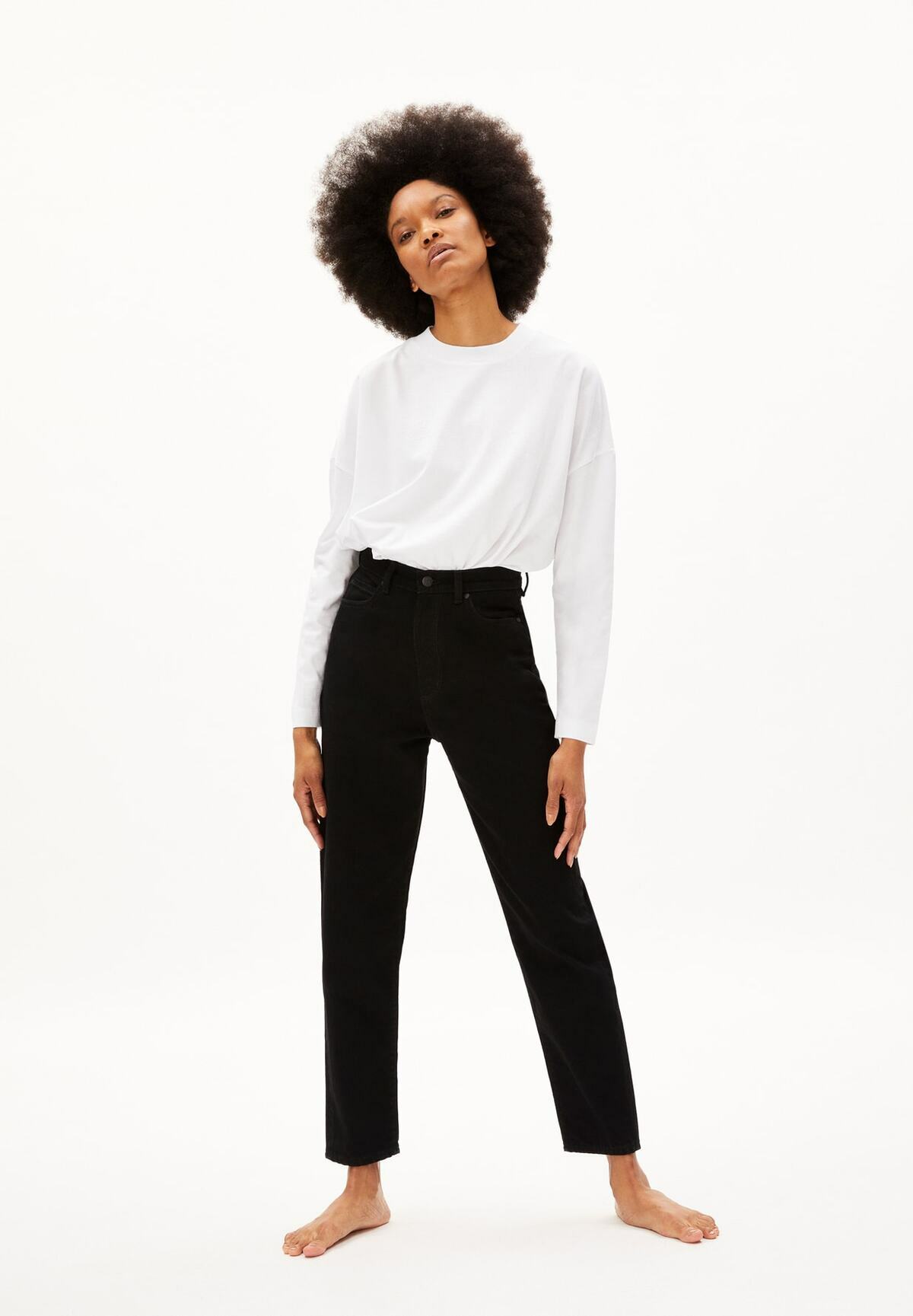
Reality Behind the Denim Industry | Interview with Katya Kruk
Despite its popularity, the production of denim includes several problematic practices behind. We talked with Katya Kruk from ARMEDANGELS on denim’s journey to sustainable production.
There is a lot to say about denim when it comes to sustainable fashion: It is one of the most preferred garments by consumers for years. Known for its timelessness, jeans are worn as a core piece by a lot of people today. However, when the reality behind its production is investigated, several cruel practices toward the environment and the labor force are observed. From an enormous amount of water use to water pollution during the indigo dying process; we have to acknowledge that denim should find a new future for itself to last ethically. As we have seen some initiatives towards it like sandblasting technique, still, many of them result in various health issues for the workers of the industry. Thankfully, some of the denim leaders in the industry have been progressing on this issue for a long time: Here is ARMEDANGELS on recycling, detoxifying, and sustainably producing denim.
The Cologne-based fashion brand ARMEDANGELS is using 100% recycled cotton for the DetoxDenim collection. Paying homage to denim’s timeless soul, the brand blended innovation with the garment. All PETA-certified vegan denim in the collection stands for cruelty-free practices when the authenticity of the pieces contemplates a bright new future in denim. We have hosted Katya Kruk, the Impact & Innovation Director of ARMEDANGELS to speak about how the industry can progress towards a sustainable future with denim.

L: We all know the denim industry is known for its widespread pollution and negative environmental impacts, which are caused by various factors including the use of toxic chemicals, excessive water consumption, and energy-intensive production processes. What is your company doing to solve these factors?
KK: Denim production has significant environmental and social impacts, but ARMEDANGELS believes that denim can play a role in sustainable fashion. Below we are talking about our efforts to make jeans cleaner. On top of that, sustainable fashion is only possible if we have sustainable fashion consumption. Denim is inclusive, versatile, and often worn and loved longer than other product groups, making it ideal for climate-friendly wardrobes.
For us, ARMEDANGELS, DetoxDenim is our mission to create cleaner jeans, by ‘detoxifying’ all steps in the production process of jeans. That means eradicating all unnecessary chemicals. Lowering the ‘chemical load’ on our planet starts with fiber: our fiber comes from organic cotton cultivation, this for example means that no synthetic pesticides are used at the farm. We also work on increasing the share of recycled cotton- further reducing the impact on the environment (by using existing fiber and not growing more). It then goes through the production steps where each step is certified to a strict list of ‘not-ok’ substances. For example, the bleaching step in our supply chain will not involve using toxic chlorine. With all these steps, we aim to show that Jeans can be much cleaner.
ORGANIC COTTON: The main component of conventional jeans is conventional cotton. Its cultivation is determined by monocultures, synthetic fertilizers, and harmful pesticides. When it comes to virgin fibers, we only use certified organic cotton. That is, by the way, also a precondition to meet the GOTS standard. This means less harm to our beautiful planet.
RECYCLED COTTON: An even better option to organic farming is no farming at all! By using recycled cotton fiber, we avoid spending resources and chemicals on growing these cotton fibers.
PRODUCTION CHEMICALS: Our suppliers are GRS (Global Recycled Standard) and/or GOTS (Global Organic Textile Standard) certified. These standards require a restricted substance list. The facilities are checked once a year by these third-party organizations. Additionally, we test the fabrics and final products in an external lab for the presence of chemicals. This enables us to have a production step with a lower impact on the environment and people. For example, bleaching usually involves the use of hazardous chemicals in conventional production – often under unacceptable working conditions. Instead of toxic chlorine and harmful potassium permanganate, we use modern techniques such as laser or ozone treatment.
L: How do you think installing treatment systems can help the environment? Can you give us an example of this impact?
KK: Installing treatment systems has significant environmental benefits by treating pollution and waste, resulting in cleaner air, water, and land. Wastewater treatment systems, for example, greatly enhance water quality by removing harmful contaminants before discharge. This reduces pollution, protects public health, preserves ecosystems, and contributes to a healthier environment and a more sustainable future.

L: Do you think denim leaders are encouraging circularity as the planet needs it right now? How important is this for your company?
KK: Although some fashion companies have already taken steps towards a more sustainable production, it is important to emphasize that the industry, as a whole, is still in a transition and there is a long way to go. Continued collaboration, innovation, and transparency are crucial to implementing more sustainable materials, increasing recycled fibers and reducing water consumption, energy, chemical use, and minimizing waste on a general large-scale.
We work towards a more circular future, by making high-quality products to extend the use phase. Additionally, we continuously increase the proportion of recycled content in our products. Last year we launched our first 100% recycled DetoxDenim, made from 100% recycled cotton: 80% pre- % 20% post-consumer waste to be exact. We also don’t want any ARMEDANGELS product to go to waste. Therefore, we offer more sustainable end-of-life options for all our products through re-Commerce (our Second-Hand shop) and recycling.
L: Lately we have been witnessing how fast-fashion and luxury brands are promoting transparency and accountability. What do you think about this? What is your company doing in this regard?
KK: We believe transparency is at the heart of all successful relationships, that’s why we insist on open relationships with our partners and suppliers as well as in our communication with our customers.
We openly publish our tier-1 suppliers, and constantly working on the ambition to have a fully transparent supply chain. This is not a trivial task. For example, we use blockchain for tracing the origins of our wool and Lenzing fibers down to spinner. Additionally, we test innovative solutions like the physical tracer or RFID chip to support the transparency journey.
We also count on neutral verification. This is why we trust in independent, third-party checks to help improve our supply chain and monitor social progress. ARMEDANGELS is assessed annually by the FWF through its Brand Performance Check. In 2022, we scored the Leader status – again! Ourselves and all our partners are at least GOTS and/or GRS certified.
Regarding the consumer side, we strive to provide clarity on what we have done on the product side to reduce the product footprint. Last year we revised our impact strategy to include the consumer part of fashion in it. Our sharpened strategy guided us to have a clearer approach to multiple topics, also for our communication. Since it is part of our mission to support consumers to make more conscious choices and reduce their footprint, we are as transparent as possible, not only in terms of our supply chains but also within our communication. Therefore, we’re communicating clearly that any new purchase adds to the footprint consumers have. We strive to provide clarity on what we have done on the product side to reduce the product footprint. At the same time, we want to enable consumers to understand the impact of their choices on their environmental footprint.

All Images: ARMEDANGELS ©
+ Interview:
Tolga Rahmalaroglu
Luxiders Magazine Contributor








